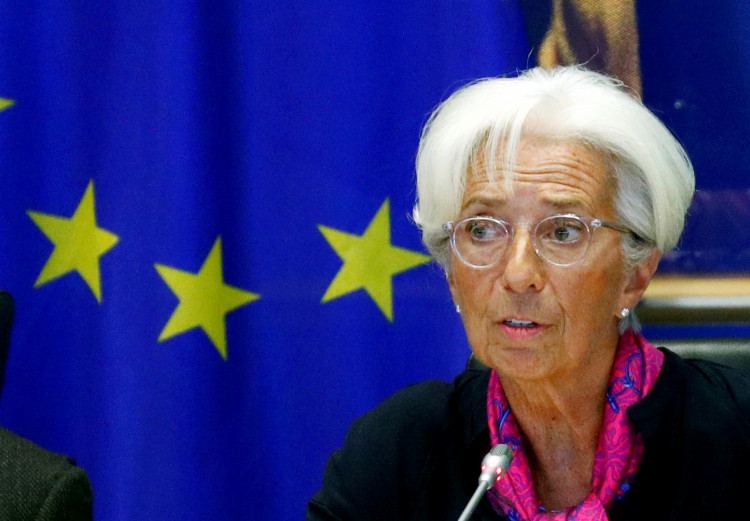The European Central Bank left its benchmark interest rate unchanged at 2% on Thursday, pausing after eight consecutive rate cuts amid heightened uncertainty surrounding U.S. trade policy and President Donald Trump's escalating tariff threats against European goods. The decision reflects the ECB's growing caution over economic volatility tied to ongoing negotiations between Brussels and Washington, with tariffs potentially ranging from 10% to as high as 50%.
ECB President Christine Lagarde acknowledged the precarious nature of the current environment. "The sooner this trade uncertainty is resolved ... the less uncertainty we will have to deal with," Lagarde said during a press conference. "That would be welcome by any economic actors, including ourselves."
The central bank has reduced rates aggressively over the past year to stimulate growth after hiking them in 2022 and 2023 to counteract a surge in inflation following the pandemic and the war in Ukraine. With eurozone inflation now down to 2%-meeting the ECB's target-further monetary easing will depend on the evolving outcome of trade negotiations.
"You could argue that we are on hold, we are in this wait and watch situation," Lagarde added.
The rate decision comes as the U.S. and EU approach an Aug. 1 deadline for concluding a new trade framework. Trump initially imposed a 20% tariff on EU goods and has threatened rates as high as 50%, later floating a 30% figure in a formal letter to EU officials. Reports of a possible compromise at 15% have been dismissed by the White House as speculation.
Financial markets reacted to Lagarde's remarks, with short-dated German bond yields posting their largest daily rise in two months. Investors interpreted her tone as relatively hawkish, suggesting the bar for further easing remains high. ECB board member Isabel Schnabel has echoed that view, warning that tariff-induced price shocks could reignite inflation and saying the threshold for additional cuts is "very high."
Internal ECB projections from June factored in scenarios involving 10% U.S. tariffs. Even under that baseline, inflation was expected to remain below target for the next 18 months, and additional tariffs could depress growth and profits for European exporters. However, the ECB cautioned that disrupted supply chains might also have an inflationary impact.
"We are in a good place because our projections point to inflation stabilising at targets in the medium term," Lagarde said. Still, she admitted that tariffs could result in both inflation and stagnation, depending on how companies respond.
The eurozone economy showed modest growth of 0.6% in the first quarter, helped by businesses frontloading shipments to beat potential tariff deadlines. A strong euro, now hovering near $1.18, has also aided in keeping import prices-and inflation-in check. But the currency's strength has begun to concern policymakers, who fear it could reduce export competitiveness.






